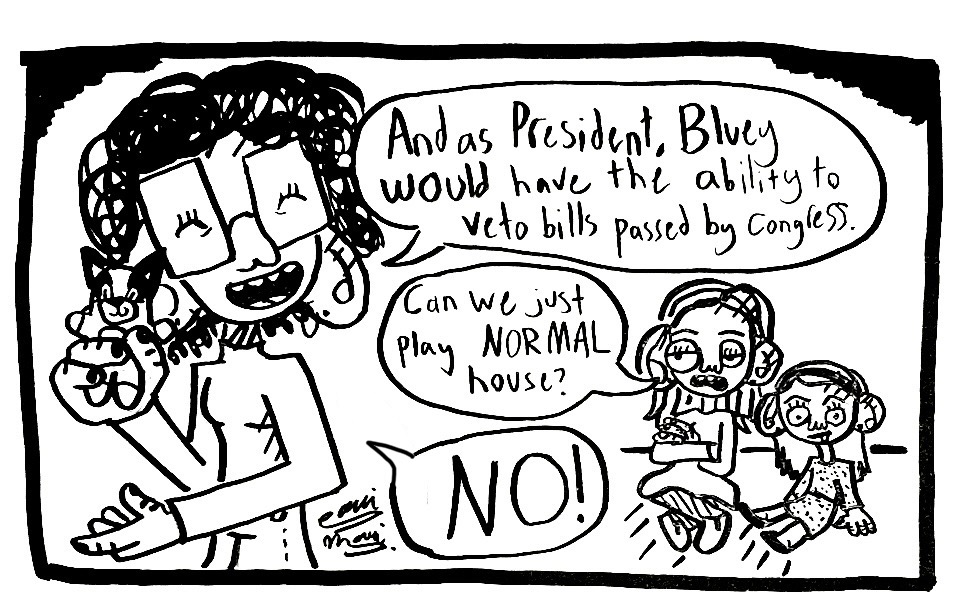
October isn’t over yet, and the Student Association’s top leaders are already making headlines for advancing their initiatives.
After this semester’s Board of Trustees meeting, several top administrators – including University President Steven Knapp, Dean of Student Affairs Peter Konwerski and Board Chair Nelson Carbonell – voiced their willingness to work with SA President Nick Gumas on his proposed peer-counseling hotline.
But let’s not get ahead of ourselves.
While it’s all well and good that these big names seem to think the hotline is a nice idea, in order to make any progress, we need clear, tangible commitment to the program.
Take a recent example – in the spring, Knapp pledged to move Student Health Service and the University Counseling Center to campus after intense lobbying from then-SA President Julia Susuni. Knapp put Konwerski at the head of a committee to search for space, and now, just a few months later, the basement of the Marvin Center is under construction to house the health centers.
The relocation of SHS and UCC was successful because a committee with a clear mission was formed and expected to produce quick results. Unfortunately, in the case of Gumas’ peer-counseling hotline, we just aren’t there yet.
He and SA Executive Vice President Avra Bossov have the University’s support in planning this program, but that support means nothing if it never turns into concrete action. Say what you will about committees, but at this school, they seem to be the key to moving an initiative forward.
That said, credit is definitely due to our SA leaders. For the past seven months, Gumas and Bossov have been hard at work gathering input from student organizations and researching peer-counseling programs at other schools. They’ve taken all that information into regular meetings with administrators so they’re prepared to field questions and concerns. They’ve been able to reassure those officials that the program will work with the other moving parts at the University, and that’s no easy feat.
They’re doing all this not because they want to pad their résumés or see their name in lights at GW, but because they recognize that mental health is a priority for students. This is the day-to-day, boots-on-the-ground work that our student leaders are supposed to do for us, and we commend them for it – in fact, the peer-counseling idea was one of the reasons this editorial board endorsed Gumas for SA president last spring.
At the end of the day, though, Gumas and Bossov and the rest of the SA are students, and they can’t implement an elaborate, University-wide program on their own. All they can do is what they’ve been doing: gathering information and advocating. Now it’s time for GW to actually put this program into place.
Gumas told us last week that his priority is to have conversations with the Division of Student Affairs, where he envisions the program will be housed. It’s time for someone to step up, and DSA, we’re looking to you.
Gumas explained that once that office has committed, he’ll look to a top official to get the final go-ahead. Then implementation can begin, including training staffers for the hotline.
But there’s another organization somewhat absent from these conversations – the University Counseling Center. Admittedly, it’s a department that is swamped right now: It is hiring new counselors, executing a move to campus and determining how it will coordinate with SHS, all while trying to best serve the needs of the student body. We can’t ask the relatively small center to also take on a new, large project and run it entirely by itself.
But when we asked UCC Director Silvio Weisner about how his department plans to work with Gumas, he said, “the University Counseling Center, as well as other colleagues in the Division of Student Affairs, worked with Student Association leaders to discuss their proposal, and we look forward to continued conversations, always with the goal of implementing resources that best support the mental health of the GW community.”
That’s not terribly emphatic.
Students on this campus need to be reassured that our school’s mental health professionals are not just “open to continued conversations,” about the program, but are fully on board with it. We need to know that UCC will stay involved every step of the way, help determine best practices and, eventually, will be part of training hotline staffers. We’d like to see more plans for how DSA and UCC will work together to both house and run this program.
But the SA’s work is not done, especially as this idea moves closer to becoming a reality. Most importantly, Gumas and Bossov should start to focus on explaining the program to students.
We know that the hotline is meant for students who just want to chat, and that the UCC will still be the primary walk-in option, but that needs to be made clear to the student body. If students don’t understand the purpose of the hotline, they might be reluctant to use it or downplay its importance.
As a measure that can act as a first step for students, the hotline would be a unique addition to the options GW already offers. It deserves support, and we look forward to seeing how both the University and the SA follow through.
The editorial board is composed of Hatchet staff members and operates separately from the newsroom. This week’s piece was written by opinions editor Robin Jones Kerr and contributing opinions editor Sarah Blugis, based on discussions with sports editor Sean Hurd, copy editor Rachel Smilan-Goldstein and design editor Sophie McTear.




